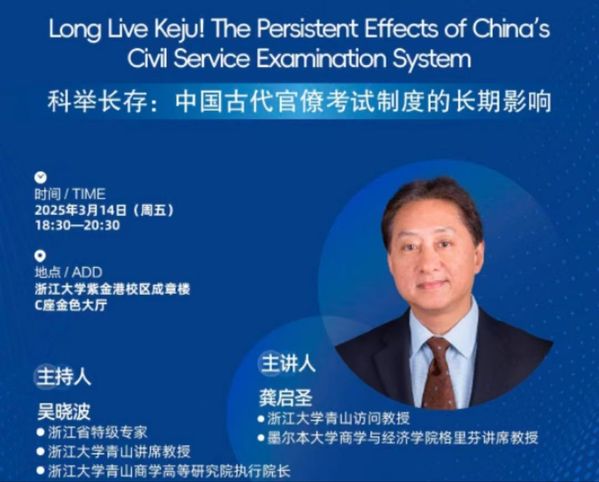Long Live Keju! The Persistent Effects of China's Civil Service Examination System
Time: 18:30
Venue: Zijingang Campus
Speaker: Gong Qisheng
Category: Talk & Lecture
Speaker: James Kung
Venue: The Golden Hall, Building C, Chengzhang Building, Zijingang Campus
Abstract: A predominant feature of Chinese civilization is the widely-diffused respect for learning. We argue that this is due to the effect of China’s civil service examination system (keju), an incredibly long-lived institution in Chinese history. Using the variation in the density of jinshi across 278 Chinese prefectures in the Ming-Qing period (c. 1368-1905) to proxy for this effect, we provide evidence showing that a doubling of jinshi per 10, 000 population leads to an 8.5% increase in years of school ing in 2010. Our evidence thus suggests how in some cultures it is education rather than material wealth that is considered important as a transfer to the next generation. While the pers-istent effect of keju can be attributed to a multitude of factors including educational infrastructure, social capital, and so forth cultural transmission represents a key channel through which the widely-diffused respect for learning is transmitted across generations.







